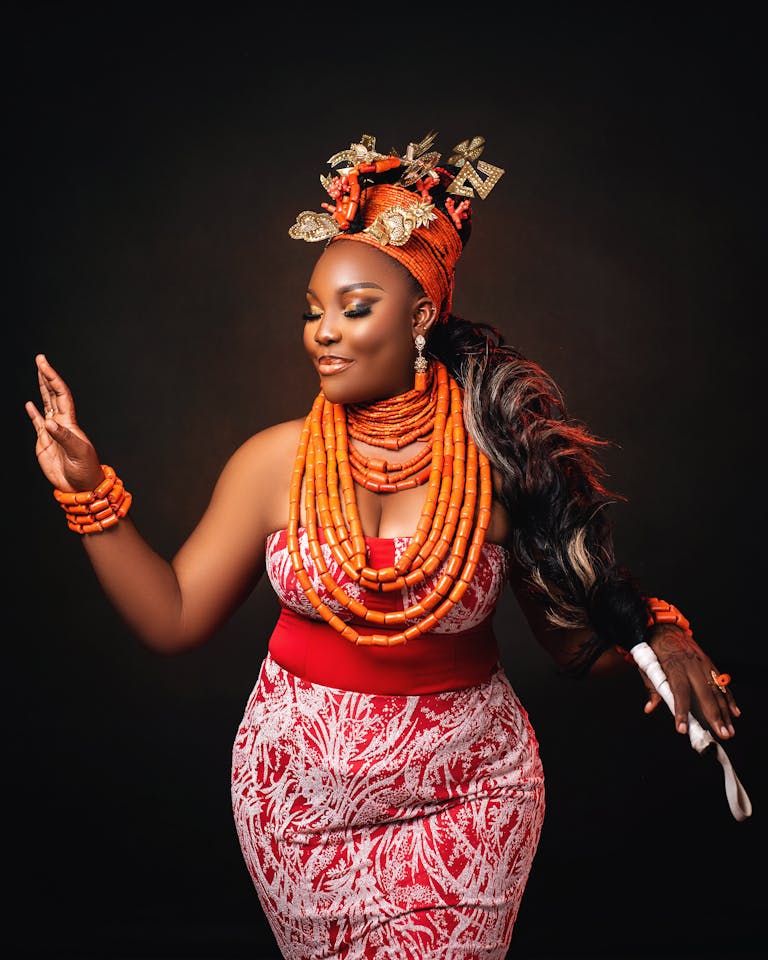Beyoncé’s ‘Cowboy Carter’ Album Sparks Symbolism and Sociopolitical Discourse

Beyoncé, the musical juggernaut, once again finds herself at the center of a whirlwind of discussion with the release of her latest album, “Cowboy Carter.” The project has been the subject of fervent anticipation and scrutiny, not just for its musical content but for the rich symbolism woven into its artwork and themes. The album release date is today, March 29, 2024.
Want to learn more about storytelling? Start by downloading the first chapter of The Storytelling Mastery.
With her track record of delivering not just music but entire cultural movements, Beyoncé has stirred conversations touching on American identity, Blackness, justice, and reclamation. And as for why she made this album, Beyoncé had this to say:
“This album has been over five years in the making. It was born out of an experience that I had years ago where I did not feel welcomed. And it was very clear that I wasn’t. But, because of that experience, I did a deeper dive into the history of Country music and studied our rich musical archive. It feels good to see how music can unite so many people around the world. While also amplifying the voices of some of the people who have dedicated so much of their lives educating on our musical history.”
The album’s cover art alone serves as a catalyst for deep introspection. Beyoncé, resplendent with platinum hair flowing, sits astride a galloping white horse, donning the iconic garb of a cowboy — leather, boots, and a pristine white hat.
See also Nina Simone: Unveiling The Power Of Racial Injustice Through Songs And Creativity
But it’s the prominent inclusion of the American flag that ignites the most fervent discussions. Critics, including the outspoken artist Azealia Banks, question the symbolism, labeling it as “white woman cosplay” and highlighting the flag’s historical ties to imperialism and violence.
However, others view Beyoncé’s embrace of the flag as a deliberate act of reclaiming patriotism. Drawing parallels to iconic paintings deifying historical figures, art history expert Tory Shulman sees Beyoncé’s gesture as a bold assertion of her Americanness.
This sentiment resonates with fans who view Beyoncé’s relationship with the flag through the lens of James Baldwin and Maya Angelou’s poignant dialogue on Black American identity and ownership of the nation they’ve contributed to and shaped over the centuries.
Beyond the flag, “Cowboy Carter” delves into the reclamation of Black country identity, resonating deeply with communities often overlooked in mainstream narratives. For many Black Texans and Americans with country roots, the album cover’s imagery evokes a sense of pride and recognition.
It pays homage to Black rodeo stars, (1870–1932), particularly rodeo queens who have long carried the American flag as symbols of victory and resilience.
See also Banning Books By African Diaspora Authors: What Should You Do Now?
The discourse surrounding Beyoncé’s album extends beyond mere visuals; it delves into the heart of systemic racism within the country music industry and broader American society.
Beyoncé’s own experiences with discrimination in country music circles inform her exploration of Blackness within the genre. Her decision to title the album’s tracklist with references to the Chitlin’ Circuit, a network of venues that provided platforms for Black performers during segregation, further underscores her commitment to shining a light on overlooked histories.
The Chitlin’ Circuit was a series of music venues predominantly frequented by Black performers and audiences, located across the eastern, southern, and upper Midwest regions of the United States, where racial segregation was prevalent.
The inclusion of “The Linda Martell Show” among the album’s tracks serves as an emotional reminder of both Black achievement and the barriers faced by Black artists in American country music.
Linda Martell, the first Black woman to perform at the Grand Ole Opry, faced prejudice and abuse that ultimately cut short her promising career. Martell, an American vocalist, made history as the first successful African American female artist within the country music domain, earning the distinction of being the first to grace the stage of the esteemed Grand Ole Opry.
Pioneering a path as one of the initial African-American figures in country music, Martell’s impact reverberated throughout Nashville, catalyzing and inspiring the careers of subsequent artists of African descent in the industry.
By honoring Martell, Beyoncé not only pays tribute to her groundbreaking achievements but also confronts the ongoing legacy of racism within the country’s music industry.
As discussions around “Cowboy Carter” continue to grow, it’s evident that Beyoncé’s influence transcends music. From sparking conversations about identity and representation to shedding light on overlooked histories, the album serves as a cultural touchstone that invites listeners to engage critically with the world around them.
As fans eagerly await its release, one thing is certain: with Beyoncé, the discourse is as integral to the experience as the music itself.
You might also want to see African Belief Systems And Its Influence On The Diaspora Community
The conversation also underscores the need for a nuanced understanding of Black American culture. In a world where narratives of Blackness are often flattened or overlooked, Beyoncé’s album serves as a powerful reminder of the richness and complexity of Black experiences.
As Taylor Crumpton eloquently articulates in her Bloomberg column, to be a Black Texan is to navigate a landscape of love and hate, resilience and struggle. Beyoncé’s embrace of cowboy imagery not only celebrates the contributions of Black rodeo performers but also challenges prevailing stereotypes and misconceptions.
Moreover, Beyoncé’s exploration of country music represents a broader trend of artists reclaiming genres traditionally dominated by white voices.
From Lil Nas X’s groundbreaking fusion of country and hip-hop in “Old Town Road” to Mickey Guyton’s emergence as a prominent Black country artist, there is a growing recognition of the diverse roots of American music.
By centering Black narratives within the country genre, Beyoncé not only expands the boundaries of her own artistry but also paves the way for greater inclusivity and representation in the industry as a whole.
See also Decolonizing the African Curriculum: Empowering Voices, Challenging Biases
The anticipation surrounding “Cowboy Carter” extends beyond its musical content to its powerful impact on fashion and cultural trends. With Beyoncé’s desire to set trends and push boundaries, fans are already speculating about the album’s influence on style.
From rodeo queen-inspired sashes to glamorous cowboy hats, the album’s visual aesthetic promises to inspire a new wave of fashion statements. Yet, as with everything Beyoncé does, these trends are more than just superficial adornments; they are reflections of deeper cultural currents and historical legacies.
In the end, “Cowboy Carter” is more than just an album; it’s a cultural event that invites listeners to interrogate their own understandings of American identity, Blackness, and representation.
By challenging conventional narratives and reclaiming symbols of Americanness, Beyoncé continues to push the boundaries of artistry and activism. As the album gets released today, one thing is clear: the conversation surrounding “Cowboy Carter” is just beginning, and Beyoncé’s influence will be felt far beyond the realm of music.
Want to learn more about storytelling? Start by downloading the first chapter of The Storytelling Mastery.





